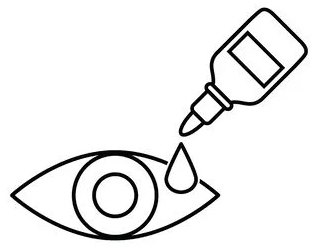Betamethasone + Phenylephrine + Lignocaine
Indications
Local anorectal conditions like haemorrhoids and fissures where, there is inflammation & pain.
Pharmacology
Betamethasone is a corticosteroid with mainly glucocorticoid activity. It induces phospholipase A2 inhibitory lipase (lipocortins) and sequentially inhibits the release of arachidonic acid, thereby depressing the formation, release, and activity of prostaglandins, leukotrienes, and other inflammatory mediators.
Phenylephrine is a sympathomimetic with mainly direct effects on alpha-adrenergic receptors and weak beta-adrenergic activity. It causes vasoconstriction of the arterioles of the nasal mucosa and conjunctiva; activates the dilator muscle of the pupil to cause contraction; produces vasoconstriction of arterioles in the body and produces systemic arterial vasoconstriction.
Lidocaine alters signal conduction in neurons by blocking the fast voltage-gated Na+ channels in the neuronal cell membrane responsible for signal propagation. With sufficient blockage, the membrane of the postsynaptic neuron will not depolarize and will thus fail to transmit an action potential.
Dosage And Administration
Apply locally 2 or 3 times daily initially, using the applicator if internal administration is required, When inflammation is subsiding once-daily application is sufficient in most cases,
Interaction
Not known
Contraindications
Topical corticosteroids are contraindicated in: Primarily infected skin lesions caused by viral infections e.g herpes simplex, vaccinia or varicella (chicken pox), by bacteria e.g impetigo, by fungal infections e.g candidiasis, tineasis or by tuberculous infection of the anal region; Sensitivity to any of the components of the product; Dermatoses in children under 1 year of age.
Side Effects
As with all topical corticosteroids, its use for prolonged periods, may cause systemic absorption, specially in children. Prolonged and intensive treatment with active corticosteroid preparations may also cause local atrophic changes in the skin. There are reports of pigmentation changes and hypertrichosis with topical steroids, and in this situation it should be discontinued. Some patients may experience burning upon application, specially if the mucous membrane is not intact.
Pregnancy And Lactation
The safe use of topical corticosteroids in human pregnancy has not been fully established. Topical administration of corticosteroids to pregnant animals can cause abnormalities of fetal development including cleft palate and intrauterine growth retardation.
Therefore, there may be a very small risk of such effects in the human fetus. So, it should not be used unnecessarily in large amounts or for prolonged period.
Precautions And Warnings
Long-term continuous treatment should be avoided. Discontinue if sensitization occurs.
Therapeutic Class
4-Quinolone preparations, Phlebotonic & Vascular protecting preparation
